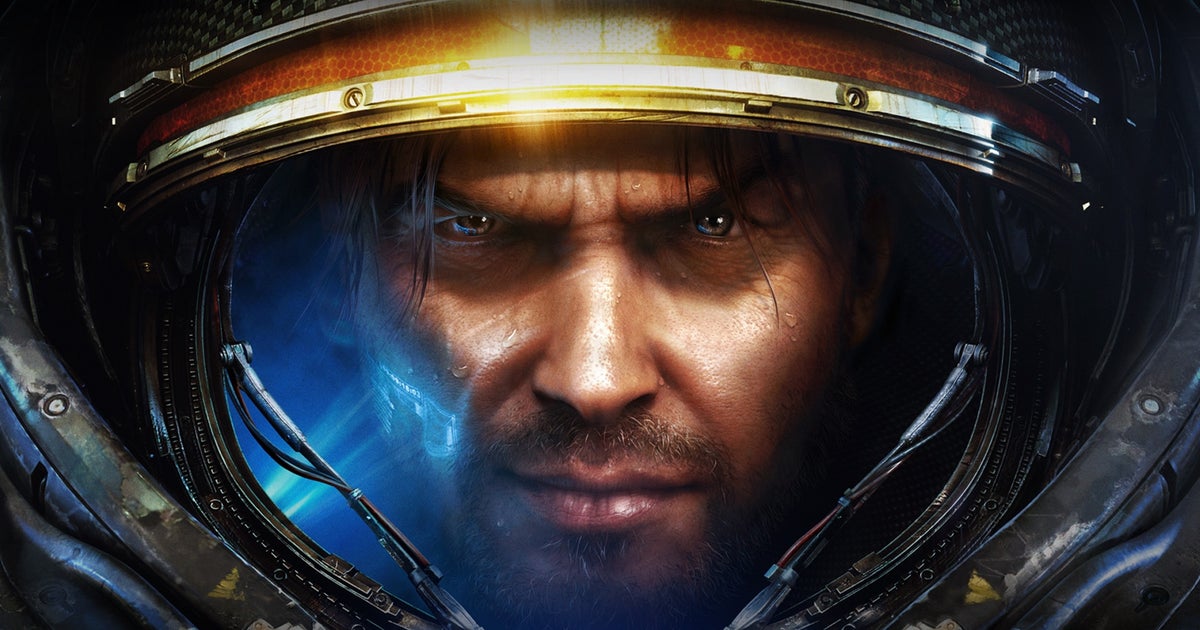Products You May Like
Last time, you narrowly decided that a diegetic HUD is better than quick restarts. That result was a narrow victory—53% vs 47%—which shows how important it is to engage with the formation of scientific consensus. If you disagree with the newly established fact, well, you can’t quick-restart your way out of this one. Onwards! This week, I ask you to decide between two different ways your decisions can have unusual outcomes. What’s better: present decisions deciding past events, or that puzzle where switches turn on some things while turning off others?
Present decisions deciding past events
When we talk about branching narratives, we tend to think of changing the future of a plot. Sometimes, a game lets us change the past. Our present actions and decisions will decide what already happened, settling uncertain facts or changing unseen events. While this is rare, it’s a clever little trick and I do enjoy seeing it.
In 2010, Karen Gillan admired StarCraft 2’s trick to make you always correct. At points when forks appear and you pick your path into the future, the game rewrites the past to ensure Jim Raynor is a hero with infallible gut instinct. Is there still time to fight a Zerg infestation, or was it so out of control that your pal is already doomed to be a beastie? Is a new ally a trustworthy freedom fighter or is he building an army of “psychopathic killers?” Whatever you decide, you’re right, hero.
Rewriting the past can reflect your history too. In horror shooter The Suffering, for example, at certain points our convicted murderer of a protagonist can help or harm NPCs as he tries to escape both prison and ghosties. These decisions affect a karma score which decides not only the ending but the reality of the beginning. Was he framed for killing his wife and kids, or did he absolutely murder the hell out of them, or was it a tragic accident followed by one son spitefully killing the other then himself? The way you play will decide.
A few more examples pop to mind but seeing as they do largely involve revealing plot points, I’ll hush up and leave it to you. Do tell us all about other times you’ve spotted and enjoyed this trick, with spoiler tags if you want.
It is a trick but games are nothing but tricks, and this one can lead interesting places. As Karen said, it “[rejects] the idea that the game’s an objective world, in favour of doing anything to create the sort of dramatic story they want the game to possess.” I welcome this trick as another move to expand narrative possibilities in games. It’s another way we might see more decisions not as ‘the correct one’ and ‘the incorrect one’ or ‘the good one’ and ‘the evil one’, things to solved and mapped and executed to plan, but different types of interesting.
That puzzle where switches turn on some things while turning off others
I don’t know the name for this thing but you know this thing. Perhaps you need to turn off a series of deadly industrial fans to enter a ventilation shaft, but they’re controlled by three switches and pulling each switch will only turn off some fans then another switch will turn one of those fans back on while also flipping more off then the third switch will turn one more off but flip another few back on then… you know this thing. Or maybe you need to turn on lights, or shut down water, or touch torches, or… you know this thing. And I imagine many of you instantly turn to Google when you encounter this thing.
Someone must like this thing because I don’t think it keeps appearing in game after game by accident. It seems improbable that so many game studios would have a clumsy intern bump into the box of code and accidentally knock this puzzle into the dough. It’s here because enough developers really like it. We must consider it a potential best thing.
Hopefully we have a thing-liker amongst us to explain, but let’s try to puzzle this one out ourselves too. So, most games are built primarily from familiar parts. And reusing familiar puzzle types means a game can offer the small satisfaction of solving a puzzle but not require serious thought to figure out a whole new thing, just apply the process you learned long ago. And this one sure is familiar. Is that it? Maybe that’s it? I wouldn’t know because I’m not sure if I have ever solved one of these puzzles properly; I flip switches while muttering cusses about how absurd this for as a mechanism effectively functioning as a doorknob. But someone must like these. Do you? Please tell me.
But which is better?
I will never vote for that bloody switch puzzle, I’ll tell you that much. But what do you think, reader dear?
Pick your winner, vote in the poll below, and make your case in the comments to convince others. We’ll reconvene next week to see which thing stands triumphant—and continue the great contest.
